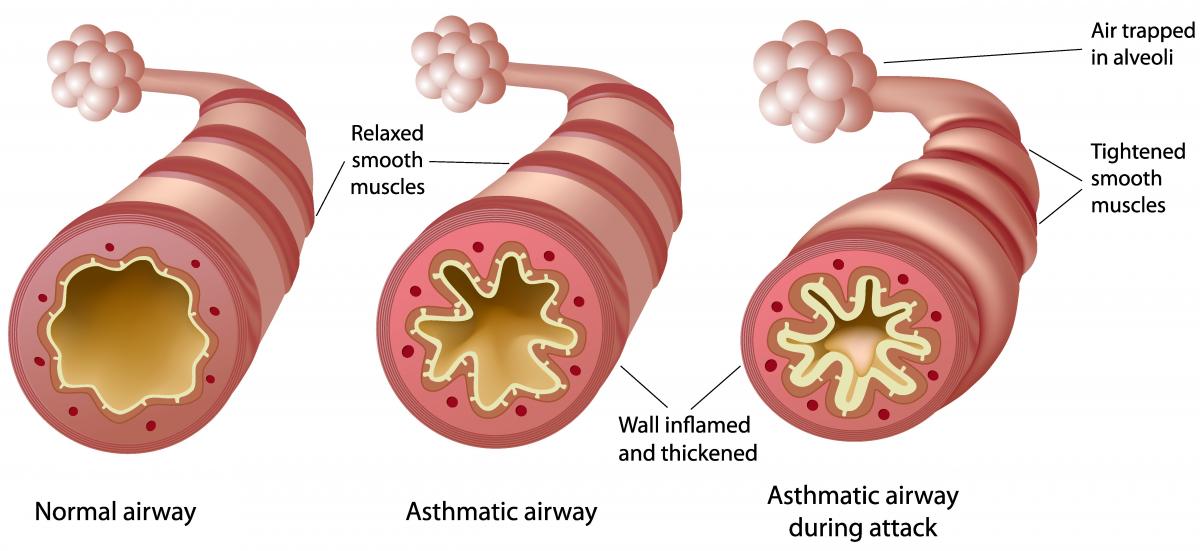Asthma symptoms are caused by narrowing of the airways. This narrowing of the airways is often provoked by asthma triggers, which are things in the environment that are breathed into the lungs.
Symptoms
Common asthma symptoms include:
- coughing (for some children and youth, this may be the only symptom)
- wheezing (a whistling sound made in the chest)
- trouble breathing
- shortness of breath
- chest tightness
Triggers
When children and youth with asthma come into contact with one of their triggers, three things may happen that cause the airways in their lungs to narrow or become obstructed/blocked making it difficult to breathe:
- the lining inside the airways starts to swell or become puffy and inflamed (thus an inflammatory condition)
- excess mucus is produced and builds up in the airways
- the muscles that wrap around the outside of the airways contract, squeezing or constricting/narrowing the airway
Each child and youth with asthma have their own set of triggers and will not always respond to them in the same way after an exposure. Additionally, their triggers can change over time.
Common asthma triggers include:
- viral infections (e.g., colds, flu), which cause up to 90 per cent of asthma attacks causing hospitalization for children and youth
- physical activity
- tobacco smoke
- air pollution
- extreme weather conditions (hot, cold, windy, humidity)
- allergies (e.g., animals, pollen, mould, dust, dust mites)
- strong odours (e.g., paints, permanent markers, perfumes/cologne, cleaning products, glue)
Refer to Physical Activities and Corresponding Triggers for more information.
Managing Asthma Triggers
Strategies to manage asthma triggers include:
- maintaining ongoing communication with parent(s)/guardian(s) and children and youth (if age-appropriate) to be familiar with current asthma triggers and any changes to their asthma triggers
- eliminating or reducing exposures to the child’s/youth’s specific triggers

Illustration of a normal airway, asthmatic airway, and an asthmatic airway during attack- Long Description
An airway with well-controlled asthma has relaxed airway smooth muscles, while poor asthma control has inflamed airways, constricted/tightened smooth muscles and mucus present, causing asthma symptoms to be experienced.
Refer to Triggers of Asthma and Steps to Reduce Exposure for more information.


